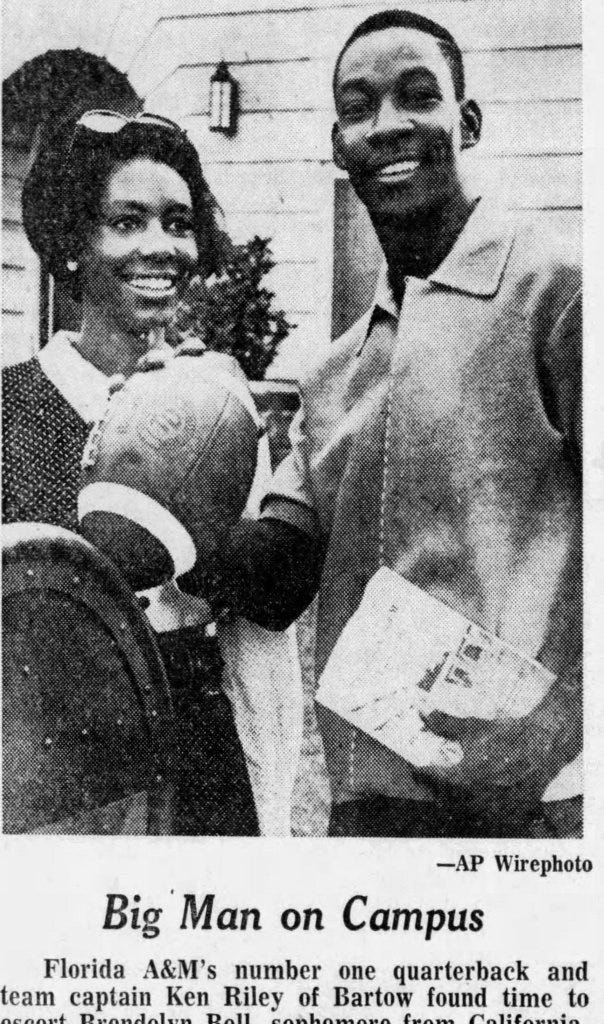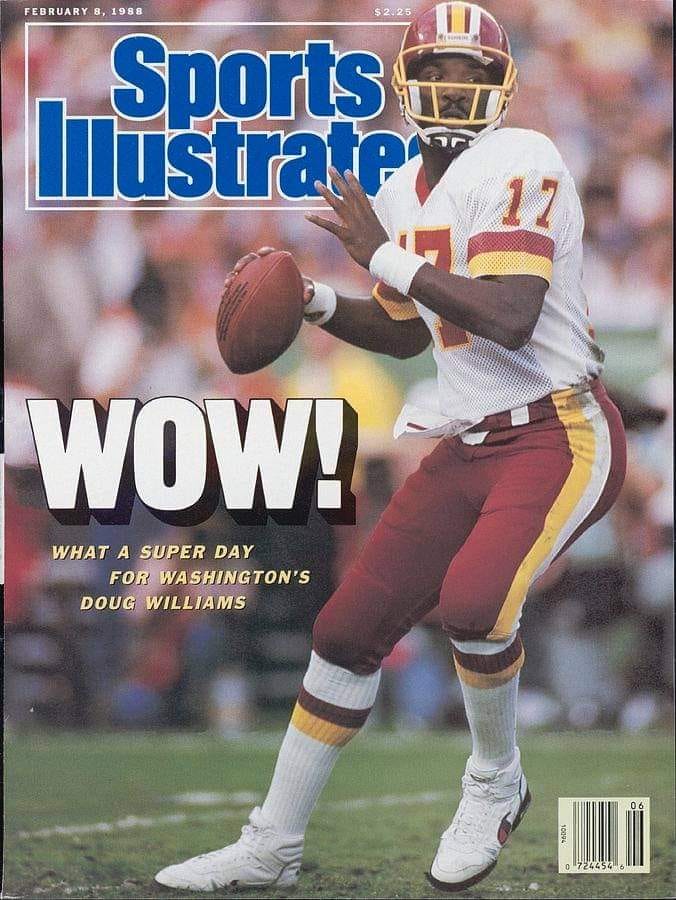Doug Williams: First Black quarterback to win the Super Bowl
Special Black History Hobbservation
While Fritz Pollard is remembered for being an early quarterback and coach in what would become the NFL, by the late 1920s, the League, much like other professional sports leagues, heavily discriminated against Black players during the Jim Crow era.
When professional football integration finally took what would become permanent roots in the late 1940s, as Black football players hailing overwhelmingly from Black Colleges began lining up at running back, receiver, on the line, and at various defensive positions, the quarterback position—long considered THE marquee position in the game—remained strictly filled by white players.
The "official reason" that was often given was that Black football players lacked the "intellectual ability" to understand complex offensive and defensive formations. But the truth is that such was simply racial discrimination, as talented Black College quarterbacks like Florida A&M University's Ken Riley—a Rhodes Scholar nominee—was switched to defensive back upon entering the NFL in the late 60's because of racism, both latent and overt!

Riley was not alone; most Black college quarterbacks found themselves catching or defending passes upon entry into the NFL; there were a few exceptions, like Marlin Briscoe, who started at quarterback for the Denver Broncos in 1968, and Joe Gilliam, James Harris, and Vince Evans of the Steelers, Rams and Raiders, to name a few. But until the late 1980s, Black quarterbacks who made rosters were still dogged with the "he can't read the playbook" or "he lacks 'inherent leadership skills' lies that limited their professional advancement.
Amid this history, when Doug Williams took the field in San Diego as quarterback of the NFC champion Washington team in 1988, he carried the hopes of an entire race with him into competition. Williams, a graduate of Grambling State University who learned under the tutelage of the great Eddie Robinson, had been relatively successful as quarterback of the oft hapless Tampa Bay Buccaneers in the late 70’s and early 80’s, but had been out of the NFL for nearly five years before he was signed in 1987 to back up Washington quarterback Jay Schroeder.

As Washington entered the playoffs, Williams took over the full-time job from Schroeder, and in Super Bowl 22, he would square off against a Broncos team led by John Elway, a talented signal caller who was the "golden boy" as far as lucrative endorsement contracts during that era.
I was in 10th grade when that Super Bowl was played, and I remember falling into despair when the Broncos quickly jumped out to a 10-0 lead in the first quarter. But then the second quarter began...and Williams started dropping bombs...to the tune of 340 yards passing and five touchdowns as he led Washington to a 42-10 rout.
More crucially, with each beautifully thrown Williams pass, those detestable lies—that Black men lacked the intellectual ability and leadership skills for the quarterback position, were shown to be lies before millions who watched the game worldwide.
Still, the NFL remained slow in making Black quarterbacks the norm and not the exception--lest we forget that it was just in 2016 that the New England Patriots started Jacoby Brissett in replacement of Tom Brady, thus making him the first Black quarterback in Patriots history and in 2017, the New York Giants finally started its first Black quarterback, Geno Smith, in replacement of the injured Eli Manning.
Yes, that was just five years ago...
Lest we forget how the NFL brass conspired to keep Black QB Colin Kaepernick out of the league due to his social activism! As such, so long as these "firsts" and indignities are still in play, and so long as the collegiate and NFL ranks continue to find excuses for switching Black quarterbacks to different positions or, in the case of Colin Kaepernick, ostracize Black players who are activists, the need to tell the story of Doug Williams's Super Bowl MVP performance—and the slow integration of the quarterback position—will continue to remain critically important.






